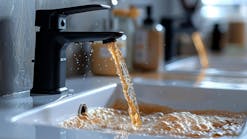Three East Settlements in Otago, New Zealand, Discover Lead in Water Contamination
The Dunedin City Council (DCC) advised approximately 1,500 residents of the coastal towns of Waikouaiti and Karitāne, New Zealand not to drink tap water after tests found it was contaminated with lead.
The advisory was placed on Feb. 2, 2021, reported RNZ.
A sample taken on Dec. 8 showed 394 micrograms of lead per liter, which is 40 times the Ministry of Health’s acceptable limit of 10 micrograms.
Six tests in the past six months showed concerning levels of lead, reported RNZ. Hundreds of residents are taking blood tests since Public Health South offered the service.
On February 5, the Public Health South agency held a public meeting in Waikouaiti, addressed by Otago Regional Council chairman Andrew Noone, mayor Hawkins and more on. Hundreds of residents attended, with many questioning the lack of information and the council’s slow response.
According to DCC officer Tom Dyer, the test result was emailed from the laboratory to a staff member on Dec. 18 but was left unopened because the individual was away on leave, reported RNZ. As a result, the population of the two towns may have been exposed to the contaminated water for nearly two months before a warning was issued.
According to what Dunedin mayor Aaron Hawkins to RNZ, “the first elevated spike was reported to the health authorities back in August of last year.”
Cast iron pipes are being investigated for contributing to the lead contamination of the water supply in Waikouaiti.
Councillors will work to replace about 5 kilometers of old pipe in Waikouaiti, which is a project that will begin soon. There is no timeframe for completing it, reported RNZ.
Work to replace similar piping in Karitane already began in 2020 before lead contamination was identified as a problem.
The cast iron pipes used lead joins, so it is suspected that those old pipes were contributing to the problem. The source of contamination had not been confirmed and the investigation of the contamination is still ongoing.
The source, extent and duration of the contamination in Otago are all unknown, reported RNZ.



